By Louise Irvine
September 22nd is National Elephant Appreciation Day, and an opportunity to highlight the ongoing plight of this popular pachyderm. Human and wildlife confrontations due to habitat loss can result in more elephant deaths than ivory poaching, so it was fascinating to learn about an initiative to leverage the elephant’s natural fear of honeybees to deter them from encroaching on rural communities. Despite the massive size disparity, elephants are frightened by these tiny insects and never forget a bee sting!
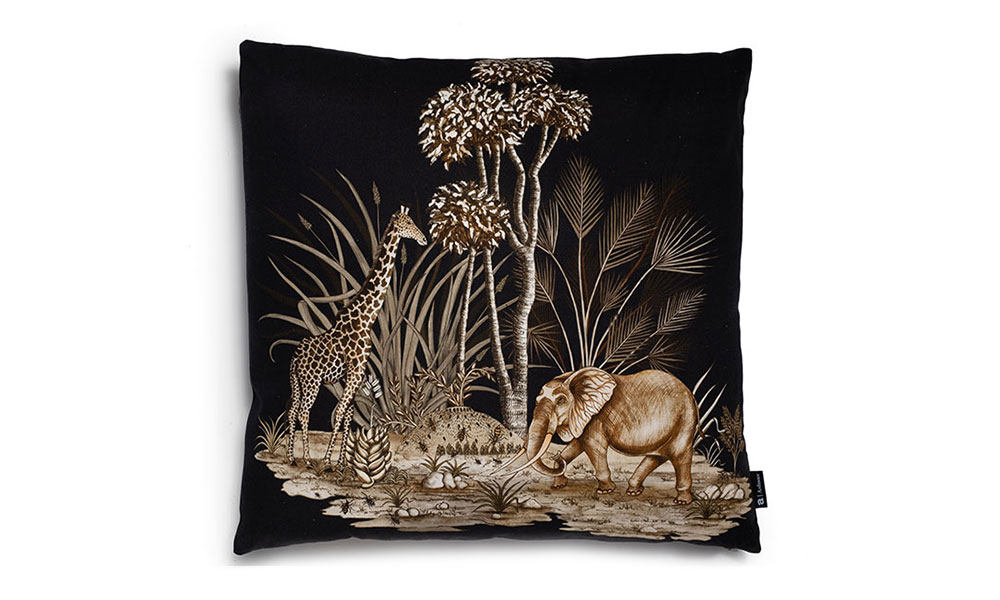
Ardmore Thanda Toile Velvet Pillow Night
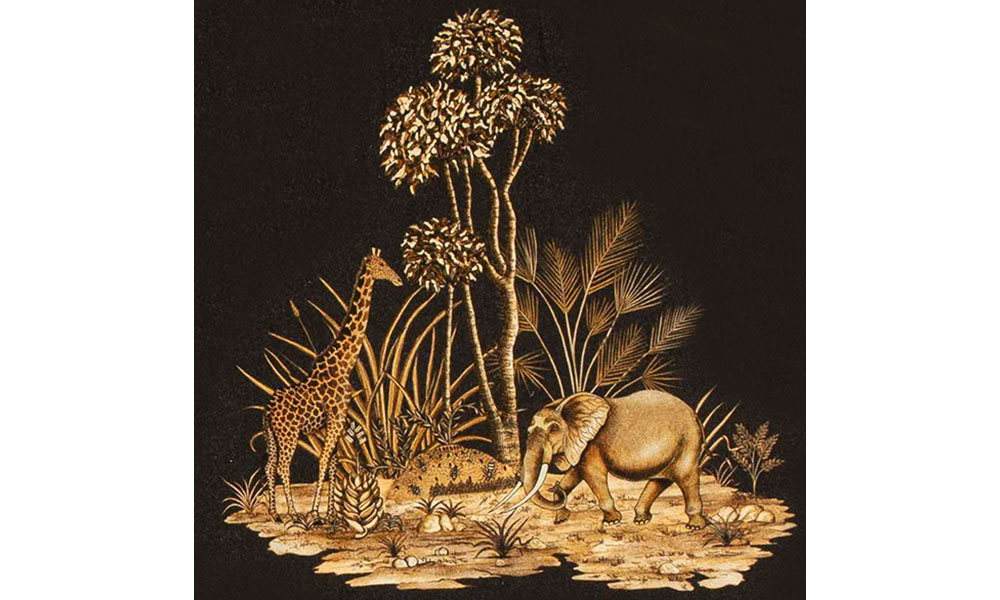
Thanda Toile Linen Gold Detail
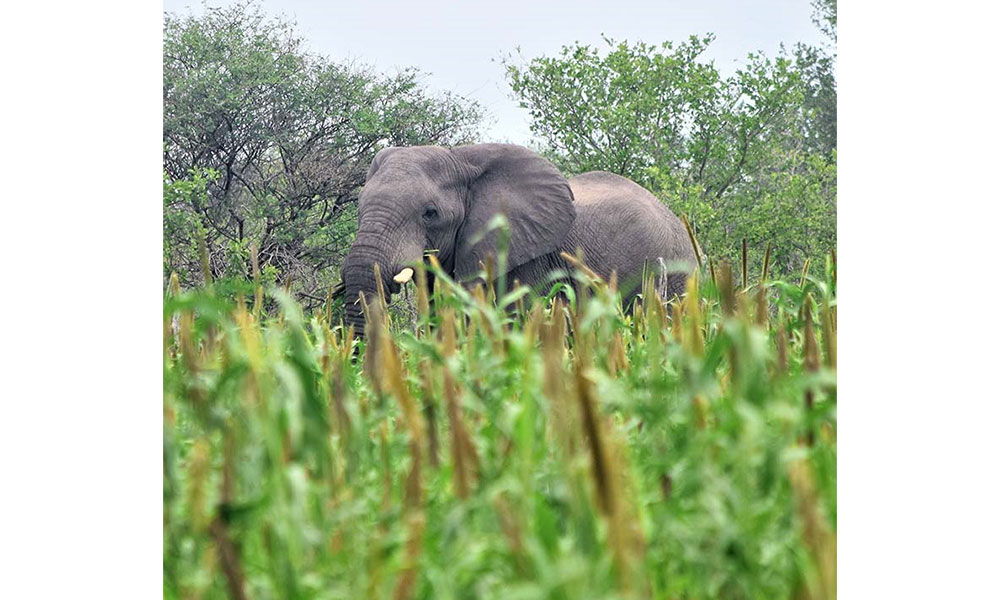
Elephant in Crops
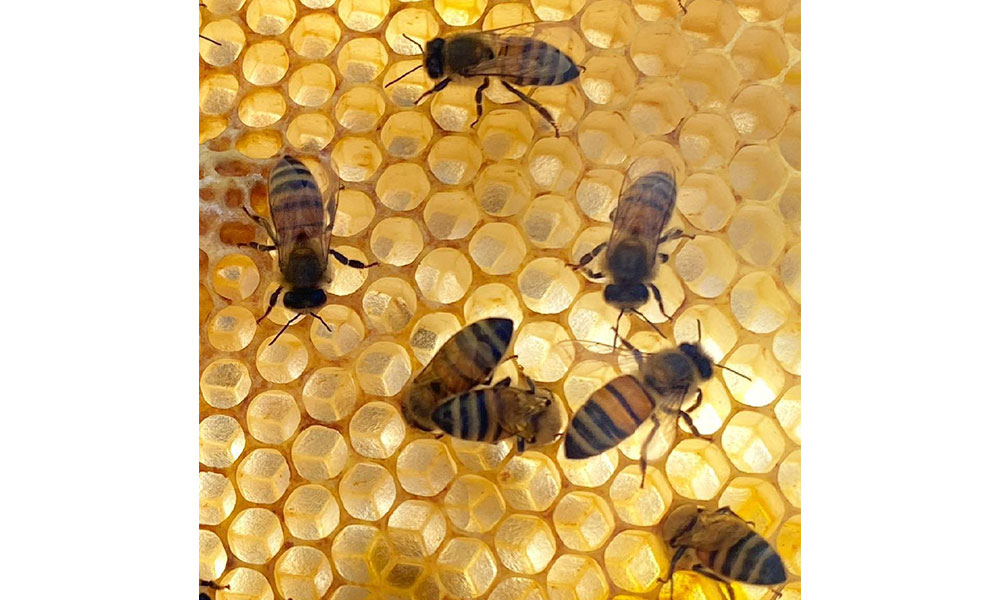
Bees in Honeycomb
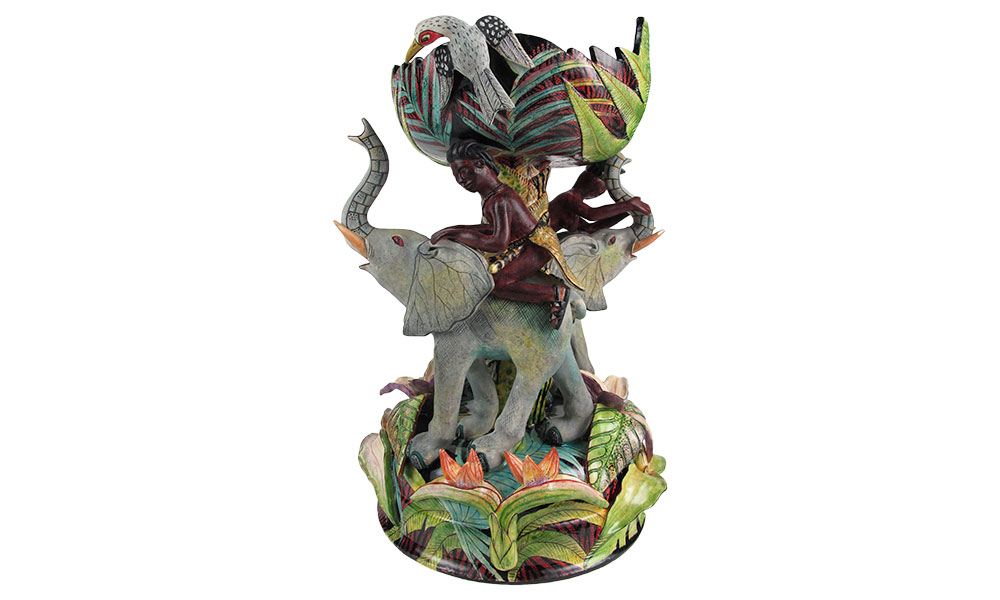
Ardmore Elephants
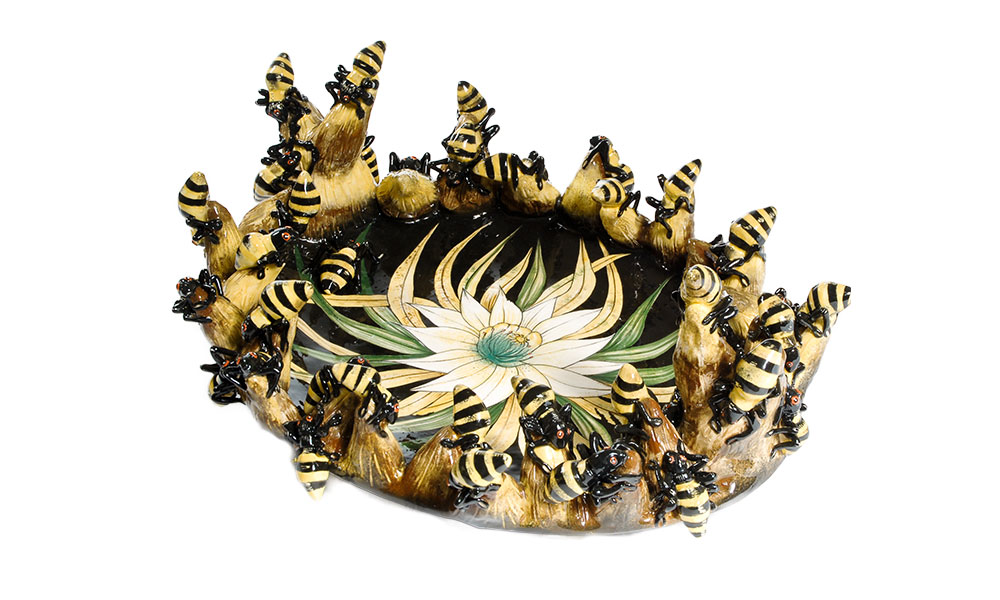
Ardmore Bees Tray
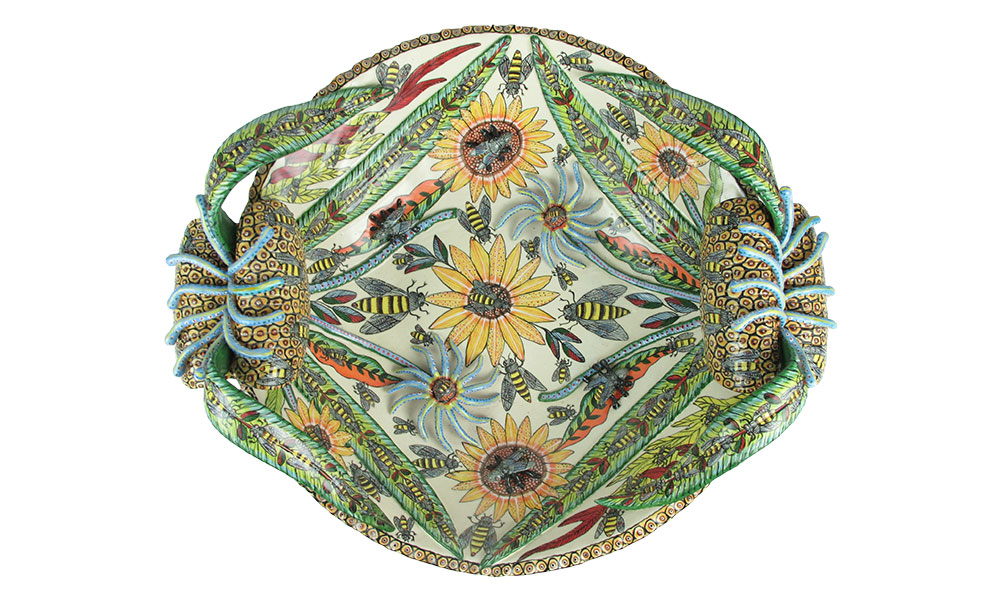
Ardmore Bees Tray
A single elephant can destroy a farmer’s crops in just one night. To reduce conflict and negative interactions, Dr. Lucy King, head of the coexistence program Save the Elephants, developed an idea to hang beehives on fences around croplands near migration routes. When the elephant tries to move through fences to raid fields for food, it shakes the connected hives, and the guard bees sting the giant intruders on the sensitive skin around their ears, eyes and tips of their trunks. Even the sound and scent of angry buzzing bees will drive elephants away and they learn to avoid the bee-fenced areas. The highly intelligent elephants never forget the location of their painful experience and warn the rest of the herd to steer clear.
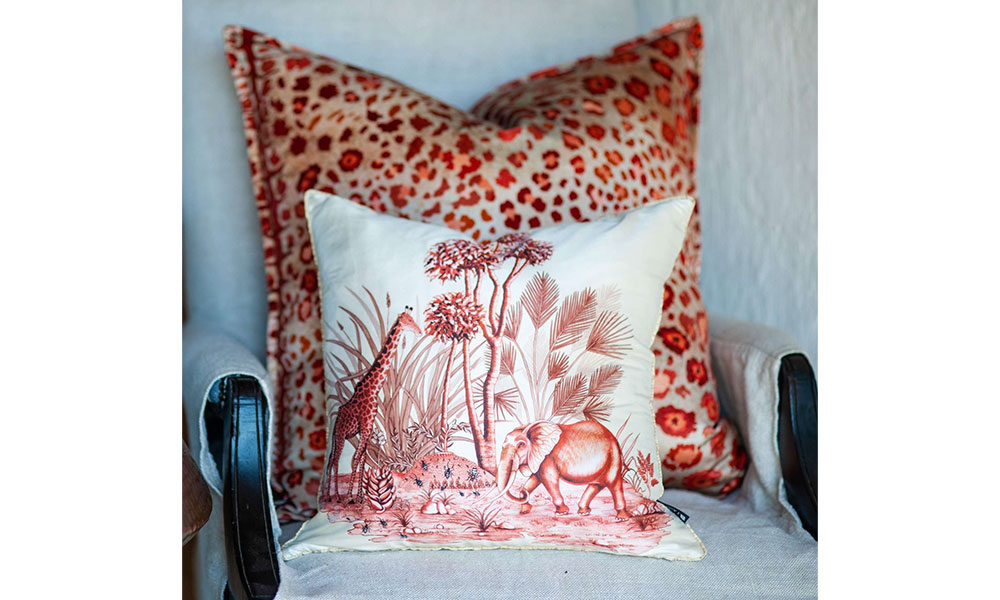
Thanda Toile Cotton Pillow Plum
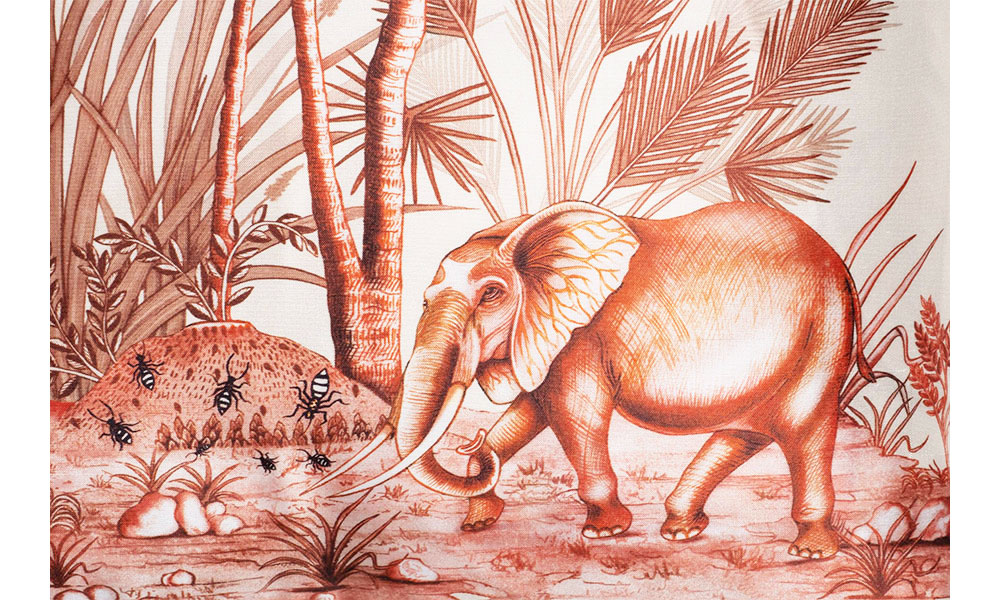
Thanda Toile Silk Pillow Detail Plum
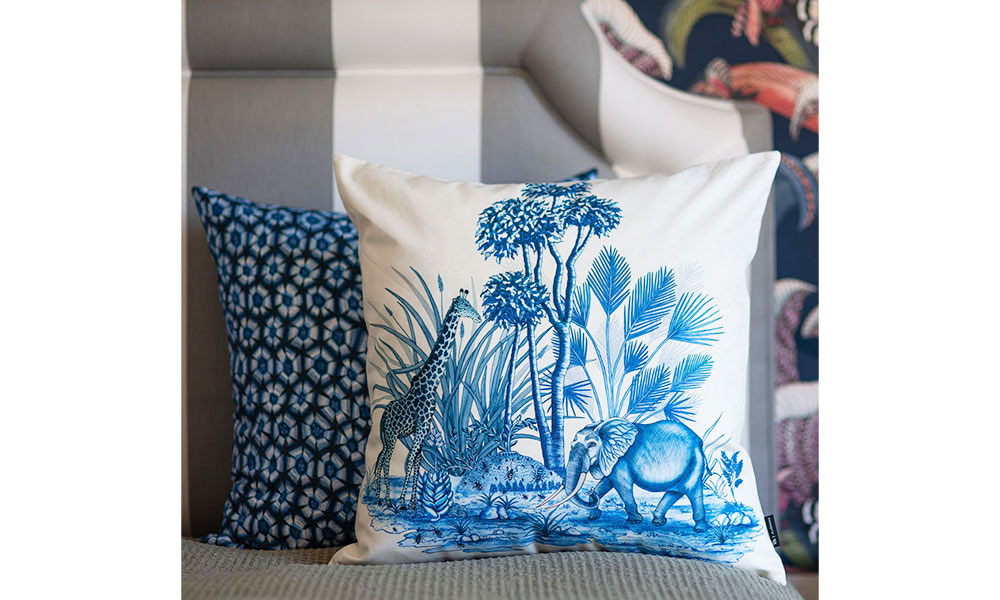
Thanda Toile Cotton Pillow Tanzanite
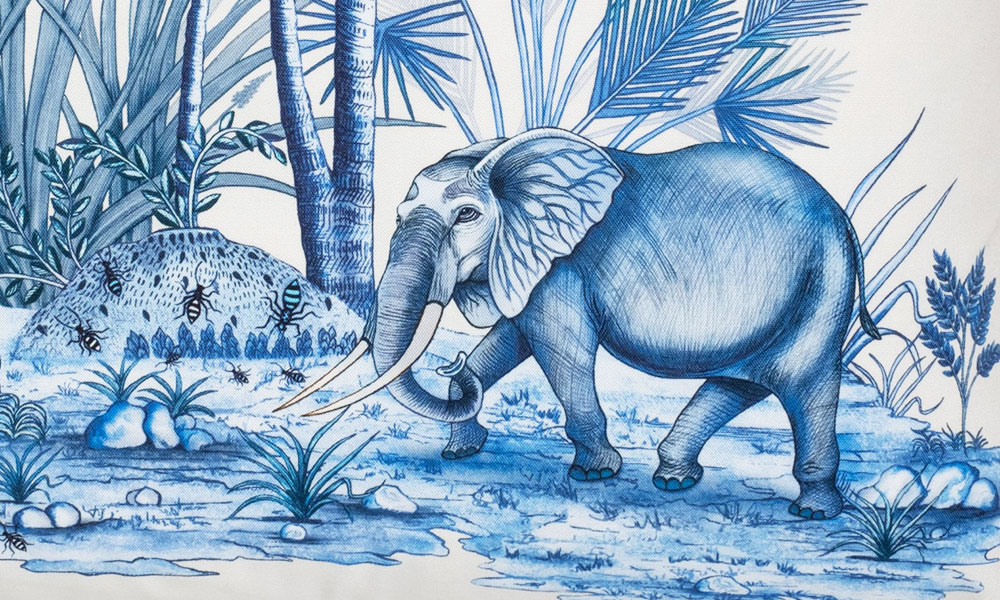
Thanda Toile Bees and Elephants Detail Tanzanite
Understanding these learned and evolved behavioral responses, the Butterfly Pavilion in Colorado began supporting the spread of bee fencing to new communities in Asia and Africa. Beginning in Nepal, India in 2018, its “Bees for Elephants” program expanded to East Africa with the Tanzanian Elephant Foundation in 2021. In addition to helping lessen the conflicts between humans and elephants, bees have also proven to be beneficial to these communities by pollinating crops and enhancing the livelihoods of locals by providing honey and beeswax from the hives for sale.
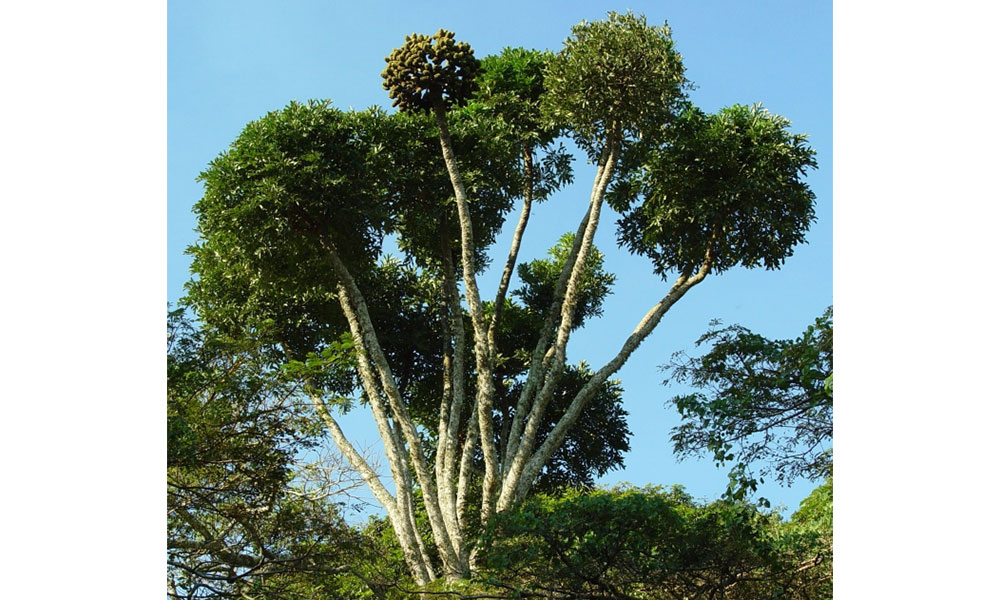
Kiepersol Tree
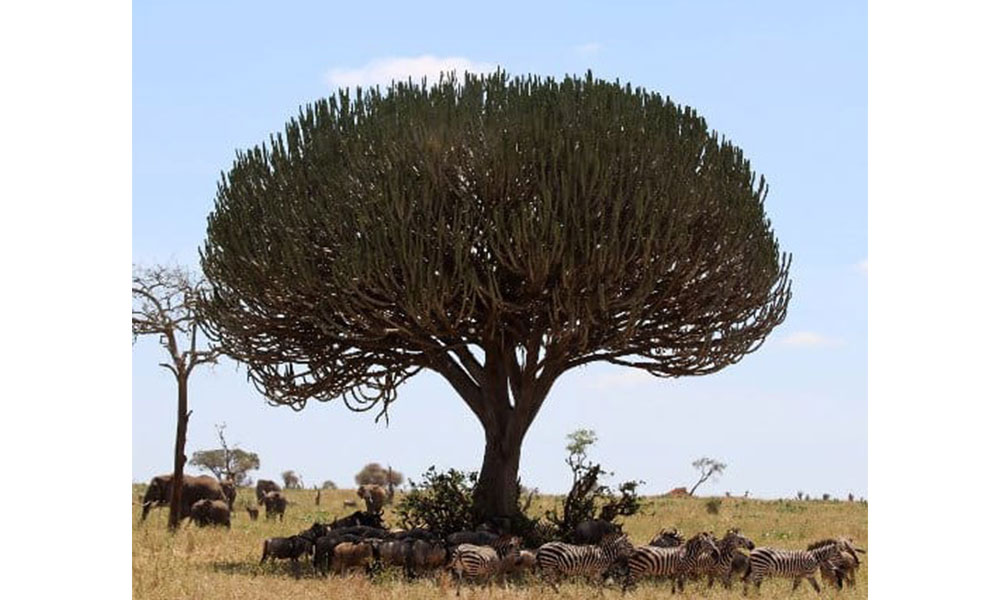
Candelabra Tree
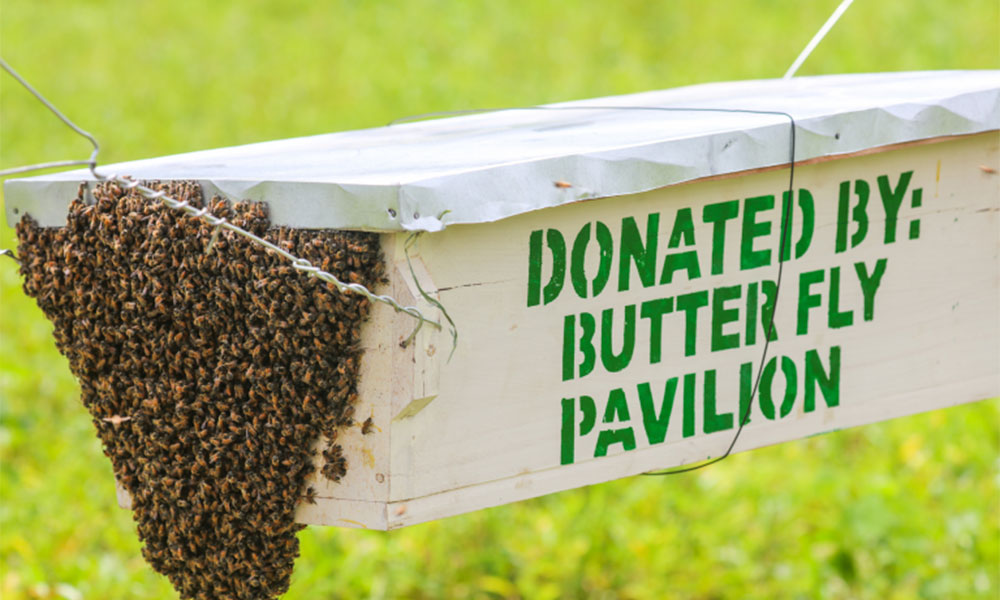
Butterfly Pavilion Hive
Thanda Toile
In South Africa’s Xhosa culture, bees are believed to be connected to the ancestors. A swarm of bees can bring messages of hope to a community. However, if they show you unkindness, it is also sign from the ancestors! Bees and elephants come together in Ardmore’s Thanda Toile pillow design. Look closely under the Kiepersol tree and you can see honeybees hovering around their hive on the ground. When this umbrella-like tree is in bloom, it is pollinated by a huge variety of flying insects attracted to the strong-smelling nectar. In Kruger National Park, scientists have placed beehives under trees to protect them from being knocked over by elephants. Fortunately, the honeybees in the Thanda Toile design are not being disturbed and the solitary elephant lumbers past unperturbed.
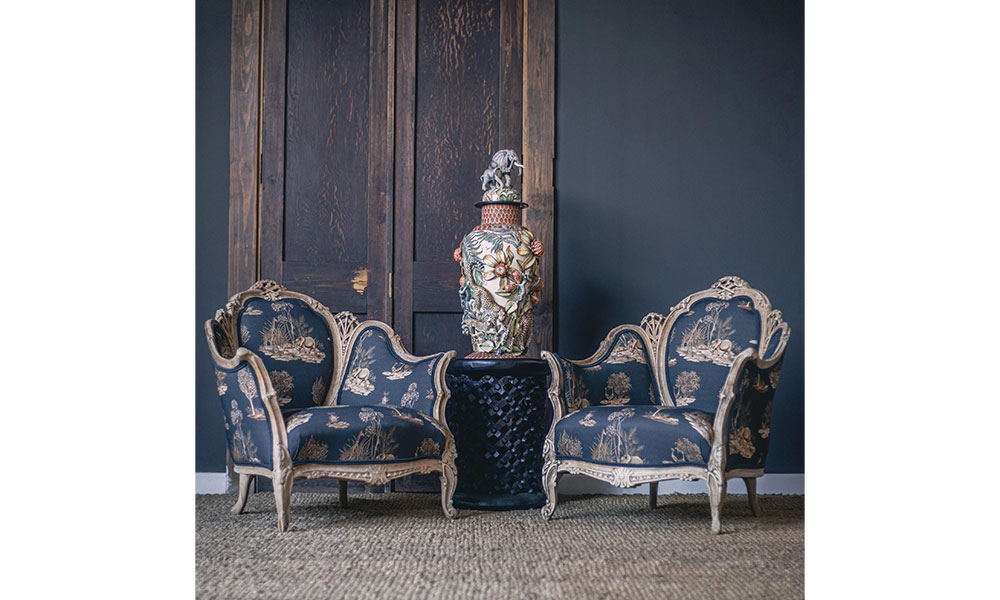
Thanda Fabric Linen Fabric Gold Chairs
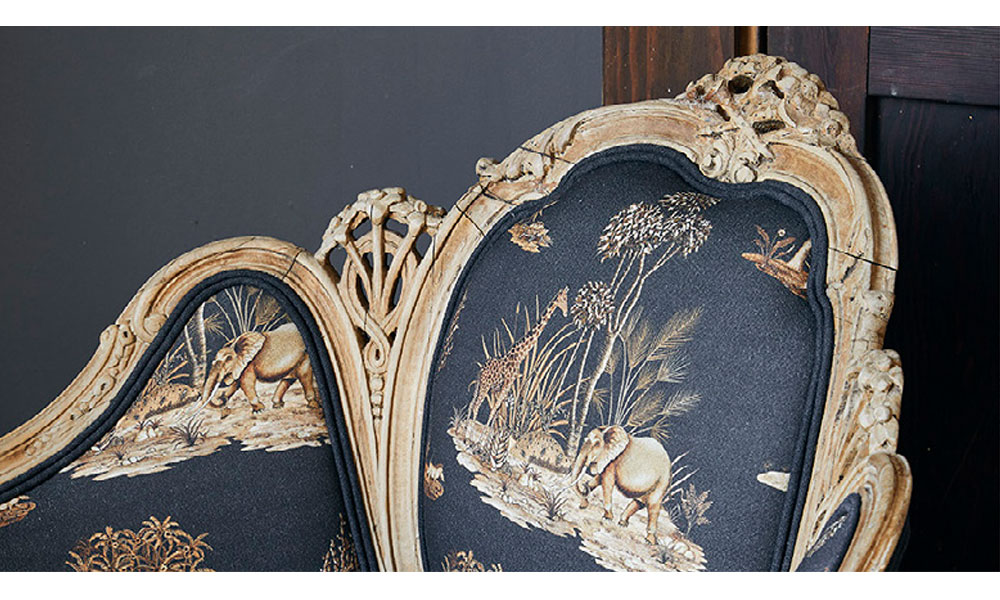
Thanda Toile Fabric on French style Chair
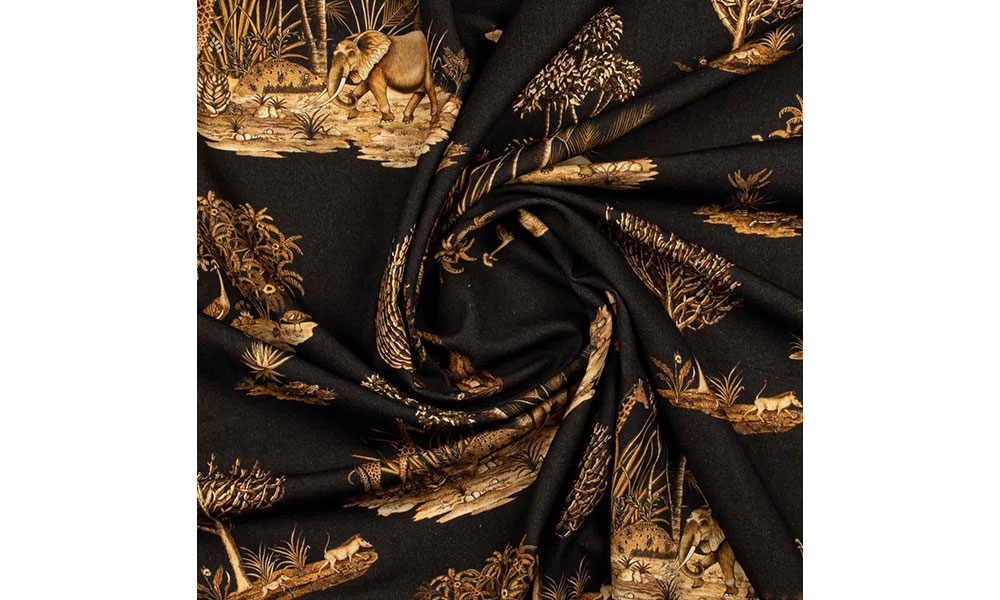
Thanda Toile Gold Linen Fabric
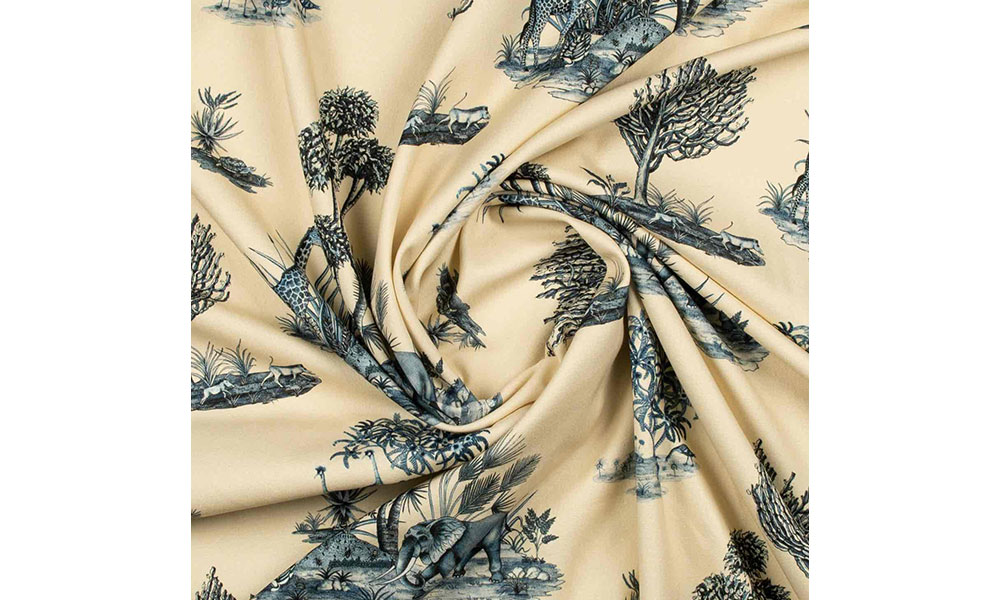
Thanda Toile Linen Fabric Tanzanite
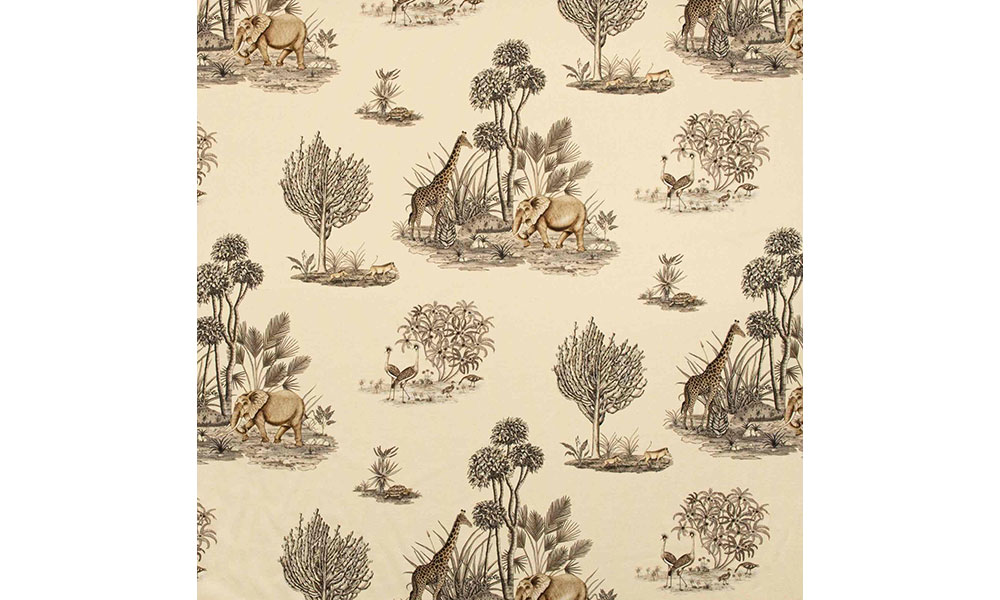
Thanda Toile Linen Fabric Stone
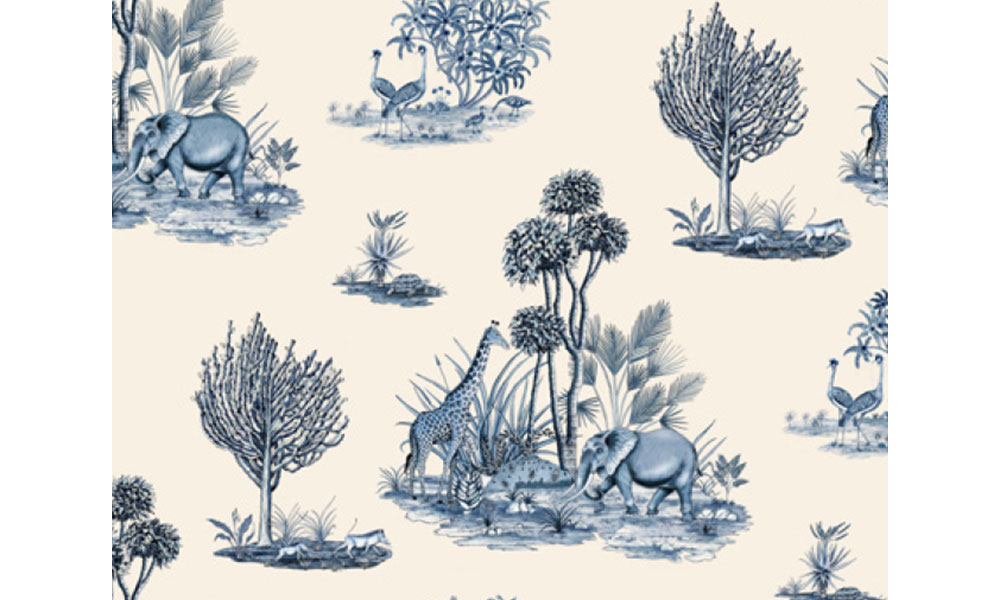
Thanda Toile Fabric Tanzanite
The Ardmore design team has created this tranquil toile pattern for velvet, silk and cotton pillows in various colors, including dramatic shades of black and honey gold. Toile fabric patterns were popularized by the French Queen Marie Antoinette in the late 18th century and quickly spread across Europe and Colonial America. Originally, the chintz fabric was printed with complex pastoral scenes repeated in a single color, such as black or blue, on an off-white background.
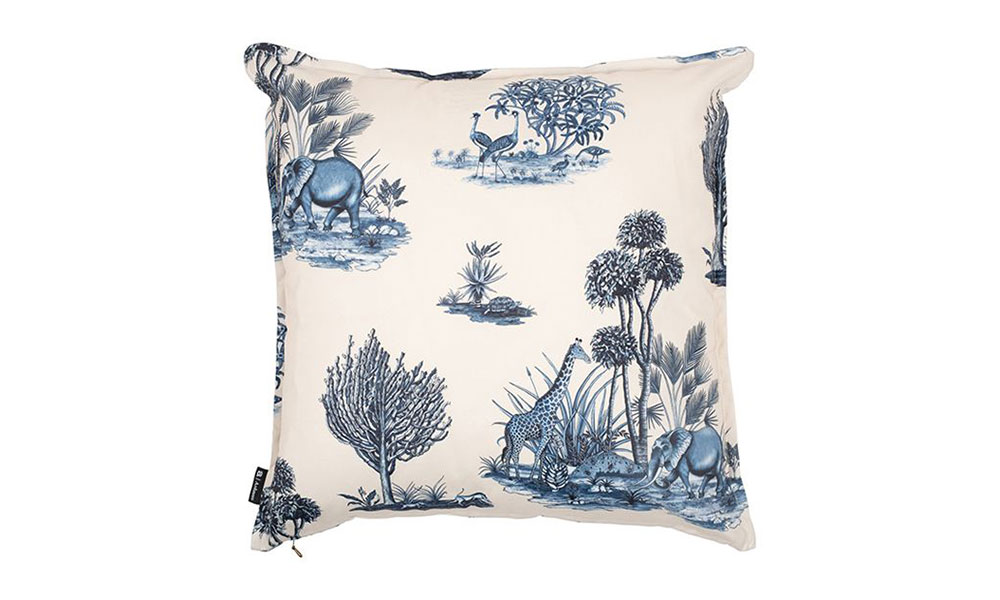
Thanda Toile Solaris Outdoor Pillow Tanzanite
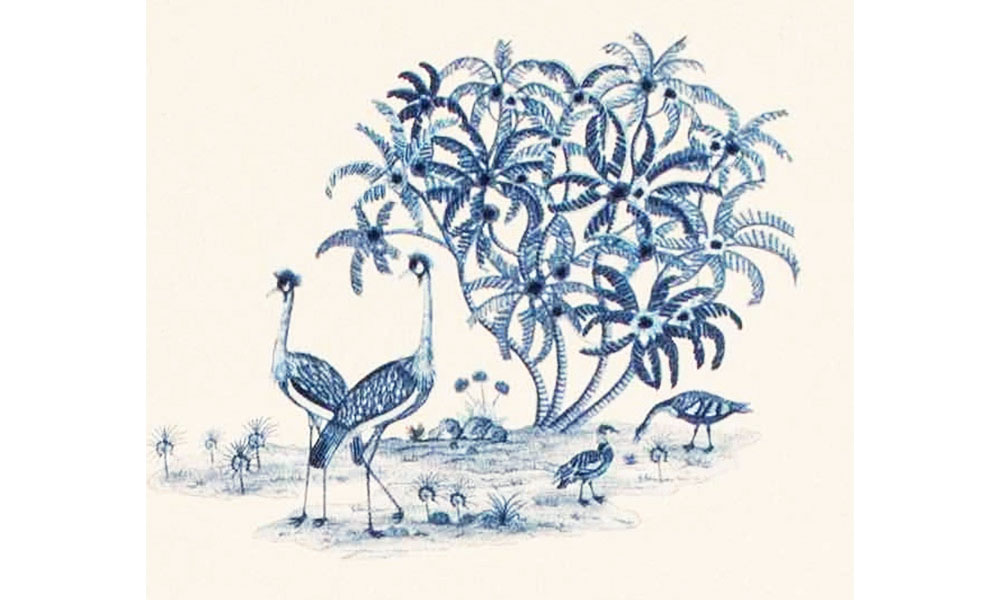
Thanda Toile Crowned Cranes Detail
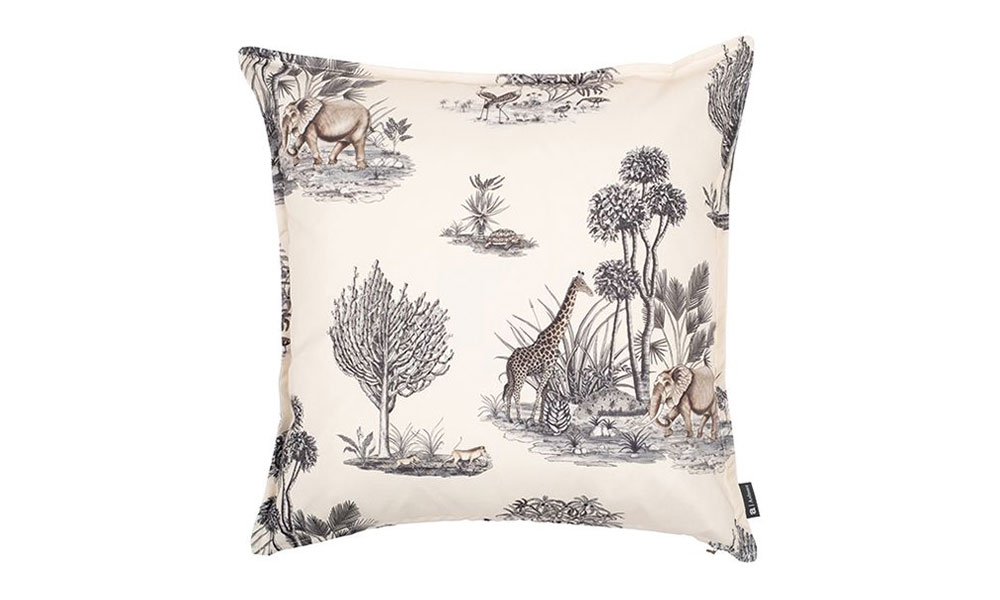
Thanda Toile Solaris Outdoor Pillow Stone
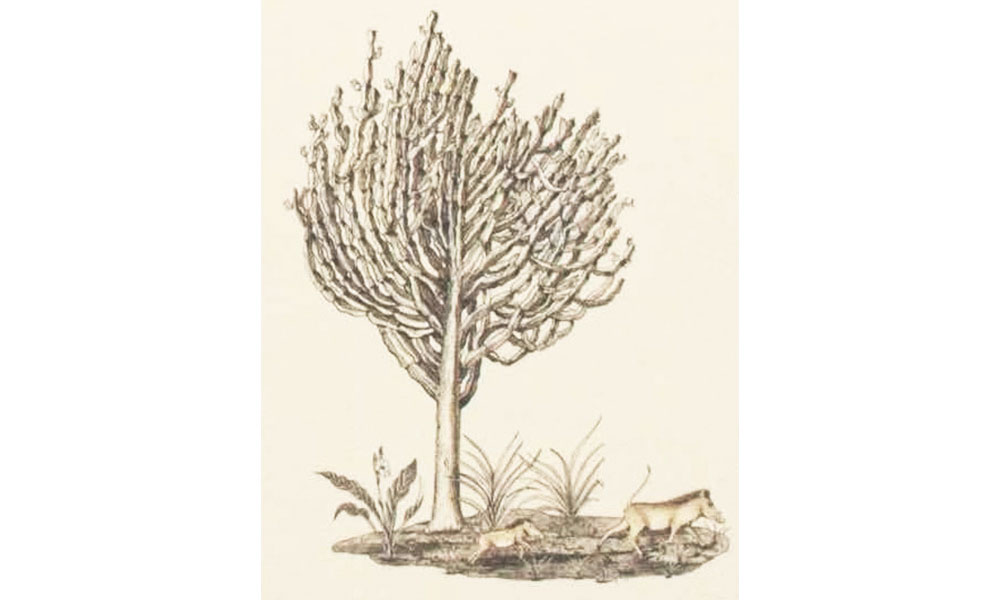
Thanda Toile Detail Warthogs and Candelabra Tree
Toiles are experiencing a revival today for upholstery and curtains. Ardmore has given us a new spin on this classic pattern with timeless interpretations of idyllic African scenes in harmony with nature. In addition to the elephant and giraffe under the Kiepersol tree, a warthog family trots past a Candelabra tree and majestic crowned cranes survey the scene. Thanda Toile fabrics are available by the yard for upholstering furniture and creating curtains. The outdoor material is also used for ready-made Solaris pillows for patios. No two pillows are alike as they are printed double-sided from the fabric run.

Pillows in Ardmore Design Shop at WMODA
Thanda means love in the Zulu language and we invite you to fall in love with Ardmore’s vibrant collection of pillows and fabrics. Contact the Ardmore Design Shop at WMODA to purchase all styles and colors of Thanda Toile pillows and fabric by the yard.
Read more about Ardmore Design
Fall in Love with Ardmore | Wiener Museum
Read more about...
The Butterfly Pavilion Project
Watch the video
